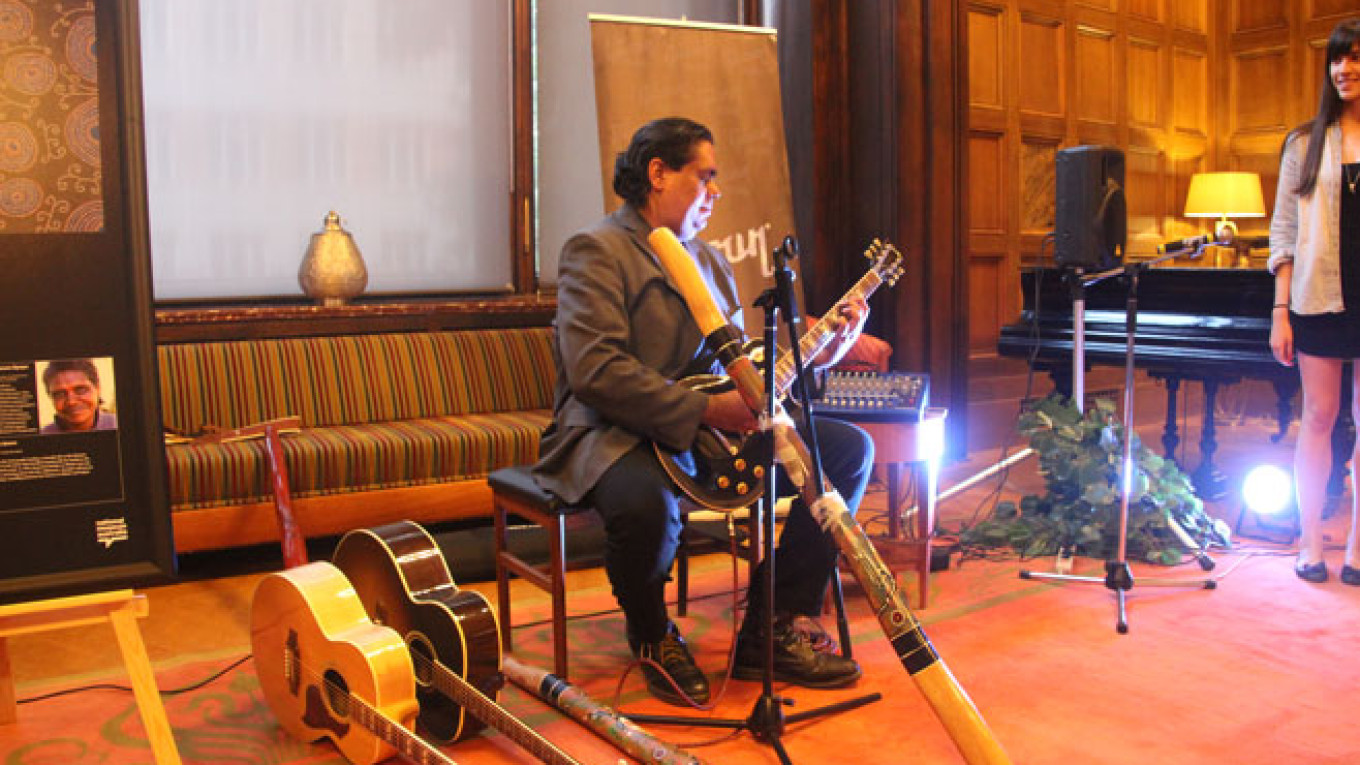World-renowned didgeridoo player and composer William Barton brought Australian aboriginal music to Russia on Wednesday as part of the Australian celebration of National Aborigines and Islanders Day Observance Committee week. Before performing in the Stars of the White Nights Festival at the Mariinsky Concert Hall in St. Petersburg on Sunday, Barton played the didgeridoo for local dignitaries at the Australian ambassador's residence in Moscow on Wednesday.
The didgeridoo is a ceremonial horn made from hollowed hardwood and beeswax that produces deep tones with a hypnotic vibrato. Didgeridoo music is strongly tied to aboriginal folk culture.
"This music is about passing on stories, one generation to the next," Barton said, before playing music that told the story of a family of kangaroos and a hitchhiker hailing a car on the highway.
During the concert, aboriginal visual art was on display, seeming to match the spiraling sound of Barton's didgeridoo. Brightly colored landscapes were painted in patterned lines and circles that looked like the rings and knots inside a tree trunk. In Australian aboriginal culture, this sacred art represents a topographical map recording the events and growth of one's life.
Following Barton's performance, Australian conductor Daniel Smith said, "The first time I ever cried at a concert is when I heard this music. To me, it means peace in the world, everywhere."
Daniel Smith is an award-winning conductor who will return to the Mariinsky Theater in St. Petersburg to conduct Beethoven's "Eroica Symphony" on Sunday. After the symphony, William Barton will perform the European debut of "Kalkadungu," a piece for didgeridoo and orchestra. This concert will be the first time an Indigenous artist and composer will perform at the Mariinsky Theater.
Some tickets still available at http://tickets.mariinsky.ru/en
A Message from The Moscow Times:
Dear readers,
We are facing unprecedented challenges. Russia's Prosecutor General's Office has designated The Moscow Times as an "undesirable" organization, criminalizing our work and putting our staff at risk of prosecution. This follows our earlier unjust labeling as a "foreign agent."
These actions are direct attempts to silence independent journalism in Russia. The authorities claim our work "discredits the decisions of the Russian leadership." We see things differently: we strive to provide accurate, unbiased reporting on Russia.
We, the journalists of The Moscow Times, refuse to be silenced. But to continue our work, we need your help.
Your support, no matter how small, makes a world of difference. If you can, please support us monthly starting from just $2. It's quick to set up, and every contribution makes a significant impact.
By supporting The Moscow Times, you're defending open, independent journalism in the face of repression. Thank you for standing with us.
Remind me later.


